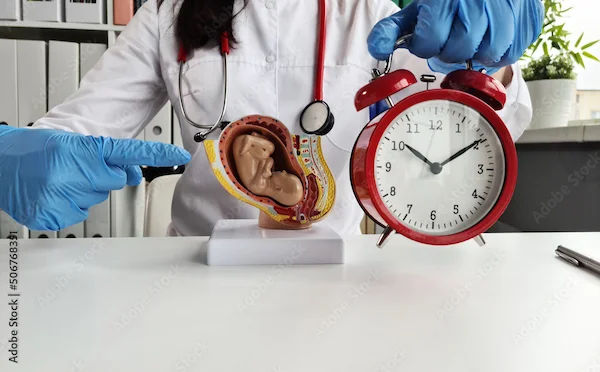Your IVF Journey Explained: Answering the Top 20 Questions
Know about the IVF myths and facts, risk myths, what is the IVF step-by-step procedure, debunking myths and a realistic view on IVF.


Introduction
The decision to pursue In Vitro Fertilisation (IVF) is a significant one, often filled with a mix of hope, anticipation, and countless questions. It's a complex medical journey, and having clear, reliable information is the first step toward feeling empowered and in control. Whether you're just starting to explore your options or are already preparing for your first cycle, this guide is designed to demystify the process. We've compiled the most frequently asked questions about IVF and provided detailed, compassionate answers to help you navigate this path with greater confidence. From the basic science behind the treatment to the emotional nuances and financial considerations, we will walk you through every stage.
Understanding the Basics of IVF
The detailed information includes:
What Exactly is In Vitro Fertilisation (IVF)?
In Vitro Fertilisation, or IVF, is a type of assisted reproductive technology (ART) that helps individuals and couples conceive a child. The term "in vitro" is Latin for "in glass," which refers to the fact that fertilisation, the union of an egg and sperm, takes place outside the body in a laboratory dish. This is the key difference between IVF and natural conception. The process involves retrieving mature eggs from a woman's ovaries, fertilising them with sperm in a lab, and then transferring the resulting embryo(s) into the uterus with the hope that it will implant and lead to a pregnancy. Since the birth of the first "test-tube baby" in 1978, IVF technology has advanced tremendously, offering hope to millions facing various fertility challenges, including blocked fallopian tubes, male factor infertility, ovulation disorders, and unexplained infertility.
Consult a General Practitioner for Personalised Advice
Who is a Candidate for IVF Treatment?
IVF is not a one-size-fits-all solution and is typically recommended after other fertility treatments have been unsuccessful or are not suitable. You might be a candidate for IVF treatment if you or your partner has been diagnosed with:
Blocked or damaged fallopian tubes: This prevents the egg and sperm from meeting naturally.
Male factor infertility: This includes low sperm count, poor sperm motility, or abnormal sperm morphology. Techniques like ICSI (Intracytoplasmic Sperm Injection) can be used alongside IVF to address this.
Ovulation disorders: If ovulation is infrequent or absent, IVF can help by using medication to stimulate the ovaries.
Endometriosis: This condition can affect egg quality and implantation.
Premature ovarian failure or diminished ovarian reserve: IVF can help by making the most of the remaining eggs.
Unexplained infertility: When no cause for infertility is found after thorough testing, IVF can be an effective option.
Genetic disorders: Preimplantation Genetic Testing (PGT) can screen embryos for specific genetic conditions before transfer.
A consultation with a fertility specialist is essential to determine if IVF is the right path for you. If you have been trying to conceive for over a year (or six months if you're over 35), consulting a doctor online with Apollo24|7 for an initial evaluation is a proactive first step.
The Step-by-Step IVF Process: What to Expect
Understanding the IVF process can significantly reduce anxiety. It typically unfolds over several weeks and involves distinct stages.
Step 1: Ovarian Stimulation and Monitoring
Instead of the single egg normally developed each month, the goal here is to stimulate the ovaries to produce multiple eggs. This is done using daily fertility injections for about 8-14 days. During this time, you will be closely monitored through blood tests (to check hormone levels) and transvaginal ultrasounds (to track follicle growth). Apollo24|7 offers convenient home collection for these crucial hormone level tests, making the monitoring process a little easier.
Step 2: Egg Retrieval Procedure
This is a minor surgical procedure performed under sedation or anaesthesia. Using an ultrasound guide, a thin needle is inserted through the vaginal wall to aspirate the fluid from each follicle, which contains the egg. The procedure usually takes about 20-30 minutes. While some wonder, "Is IVF painful?", the retrieval itself is not felt due to anaesthesia. Afterwards, mild cramping or bloating is common.
Step 3: Fertilisation and Embryo Development in the Lab
On the same day as the retrieval, the sperm sample (from a partner or donor) is prepared. The eggs and sperm are then combined in a lab dish. In cases of male factor infertility, a single sperm may be injected directly into an egg using ICSI. The fertilised eggs (now embryos) are monitored for 3-6 days as they develop. The strongest embryo(s) are selected for transfer.
The Embryo Transfer
This is a simple procedure that feels similar to a Pap smear. A catheter containing the selected embryo(s) is gently passed through the cervix and into the uterus. The transfer is guided by ultrasound and is typically painless.
The Final Step: The Two-Week Wait and Pregnancy Test
After the transfer, you enter the "two-week wait" before a blood test (beta hCG test) can confirm if implantation has occurred and you are pregnant. This can be the most emotionally challenging part of the cycle.
IVF Success Rates and Realistic Expectations
Key Factors Influencing IVF Success
IVF success rates are not a guarantee but a statistic. Your personal chance of success depends on several factors:
Age: This is the most significant factor. A woman's egg quality and quantity decline with age.
Cause of Infertility: Some diagnoses have higher success rates than others.
Embryo Quality: The viability of the embryos created is crucial.
Ovarian Reserve: Your body's response to stimulation medication impacts the number of eggs retrieved.
Lifestyle Factors: Smoking, high BMI, and excessive alcohol can lower success rates.
Understanding Live Birth Rates vs. Pregnancy Rates
It's vital to look at a clinic's "live birth rate per cycle" rather than just the "pregnancy rate." A positive pregnancy test does not always result in a live birth. Reputable clinics will be transparent about their live birth statistics, often broken down by age group.
The Financial and Emotional Investment of IVF
The financial and emotional investment of ivf includes:
Breaking Down the Cost of IVF Treatment
The cost of IVF treatment can vary widely depending on the clinic, location, medications required, and need for additional techniques like ICSI or PGT. It's a significant financial investment, so it's important to ask for a detailed breakdown of all potential costs, including medication, monitoring, procedures, and embryo freezing.
Managing the Emotional Rollercoaster
The IVF journey is as much an emotional experience as a physical one. The hormonal medications, the uncertainty of outcome, and the financial pressure can be overwhelming. Seeking support from a counsellor, joining a support group, or leaning on your partner and trusted friends is not a sign of weakness—it's a crucial part of self-care during this time.
Risks, Myths, and Important Considerations
Common Side Effects and Risks of IVF:
Like any medical procedure, IVF has potential side effects of IVF injections and risks. These can include:
Ovarian Hyperstimulation Syndrome (OHSS): A potentially serious condition where the ovaries become swollen and painful.
Multiple Pregnancies: Transferring more than one embryo increases the chance of twins or triplets, which carries higher risks.
Ectopic Pregnancy: The embryo implants outside the uterus.
Stress and Emotional Fatigue.
Debunking Common IVF Myths
Myth: IVF always results in twins or triplets.
Fact: Single embryo transfer (SET) is increasingly common and recommended to avoid the risks of multiple pregnancies.
Myth: Babies born through IVF are weaker or have health problems.
Fact: Millions of healthy babies have been born via IVF. Any slight increase in risk is often associated with the underlying infertility or the higher rate of multiple births/premature deliveries, not the IVF procedure itself.
Myth: You need to be on complete bed rest after the transfer.
Fact: Light activity is generally encouraged. Strict bed rest is not proven to improve success and may increase the risk of blood clots.
Advanced IVF Techniques and Terminology
As you research, you'll encounter terms like ICSI (Intracytoplasmic Sperm Injection, used for male factor infertility), PGT (Preimplantation Genetic Testing, to screen embryos for chromosomal abnormalities), and Frozen Embryo Transfer (FET). FET cycles are now very common and often have success rates as high as, or higher than, fresh transfers because the body has time to recover from the stimulation cycle.
Conclusion
The path of IVF is unique for every individual and couple. It requires immense courage, resilience, and hope. While the process is medically complex, understanding the steps, managing expectations, and building a strong support system can make a profound difference. Remember, you are not alone. Thousands embark on this journey each year, and advances in reproductive medicine continue to improve outcomes. Use the information in this guide as a starting point for open and informed conversations with your partner and your fertility specialist. Ask questions, voice your concerns, and advocate for your needs. Whether your journey is straightforward or has its challenges, being an informed and active participant is the most powerful tool you have. Take it one step at a time, and be kind to yourself throughout the process.
Consult a General Practitioner for Personalised Advice
Consult a General Practitioner for Personalised Advice

Dr. Rajib Ghose
General Physician/ Internal Medicine Specialist
25 Years • MBBS
East Midnapore
VIVEKANANDA SEBA SADAN, East Midnapore

Dr Divya Lekha Gunta
General Practitioner
10 Years • MBBS, MD (Pathology)
Visakhapatnam
Apollo 24|7 Clinic - Andhra Pradesh, Visakhapatnam

Dr. Siri Nallapu
General Practitioner
5 Years • MBBS
Hyderabad
Apollo 24|7 Clinic, Hyderabad

Dr Aswathy D C
General Practitioner
6 Years • MBBS
Bangalore
Apollo Clinic Bellandur, Bangalore

Dr. Sudhashree R
General Physician/ Internal Medicine Specialist
13 Years • MBBS, MRCEM
Bengaluru
Apollo Clinic, JP nagar, Bengaluru




